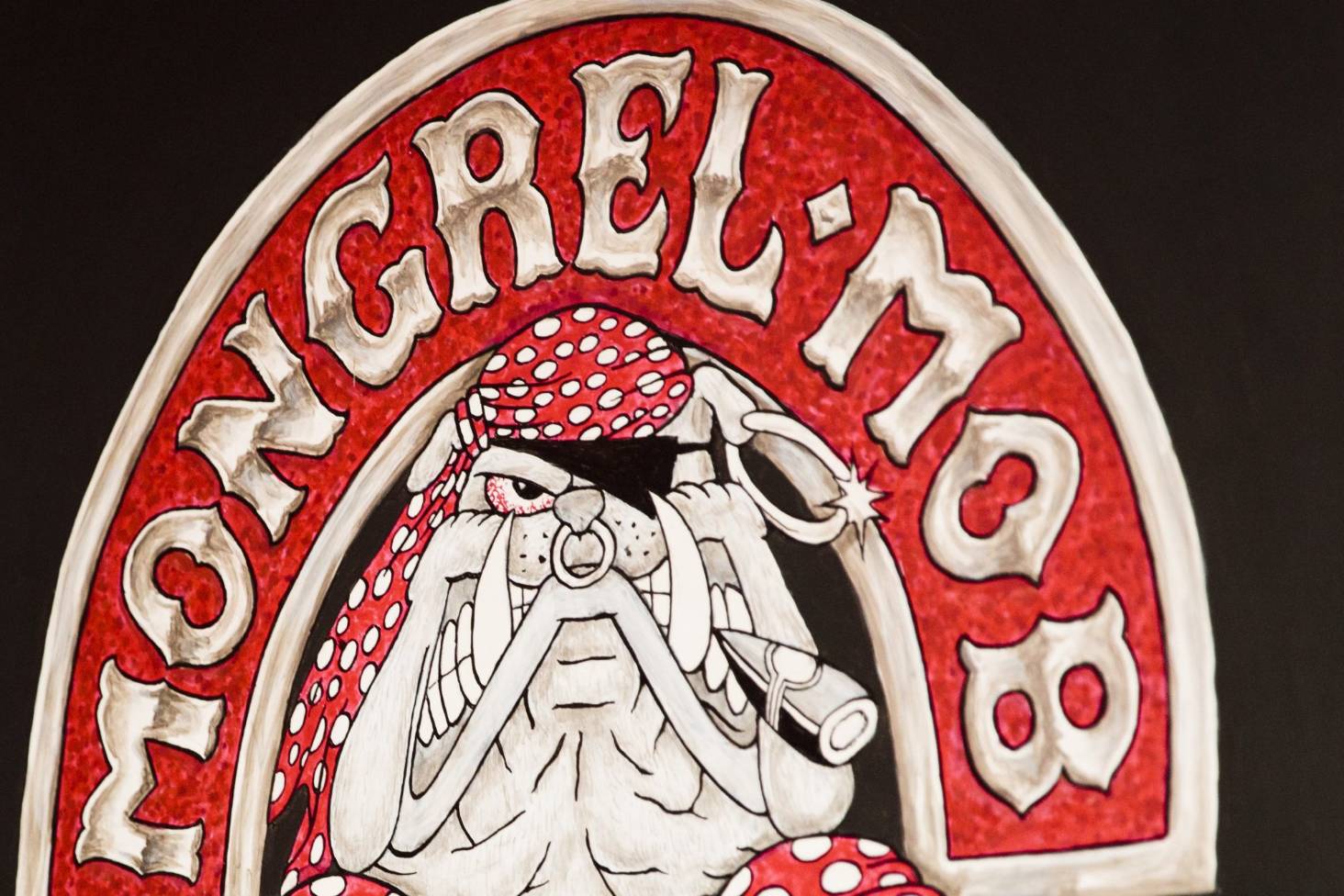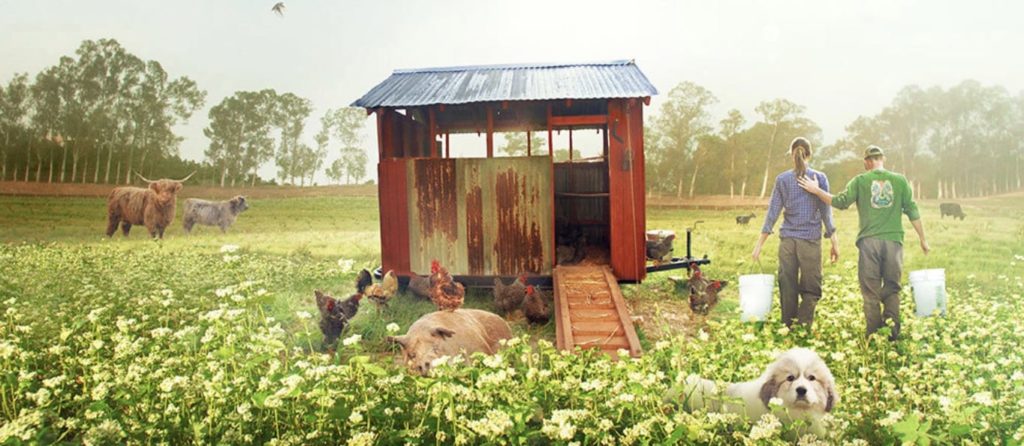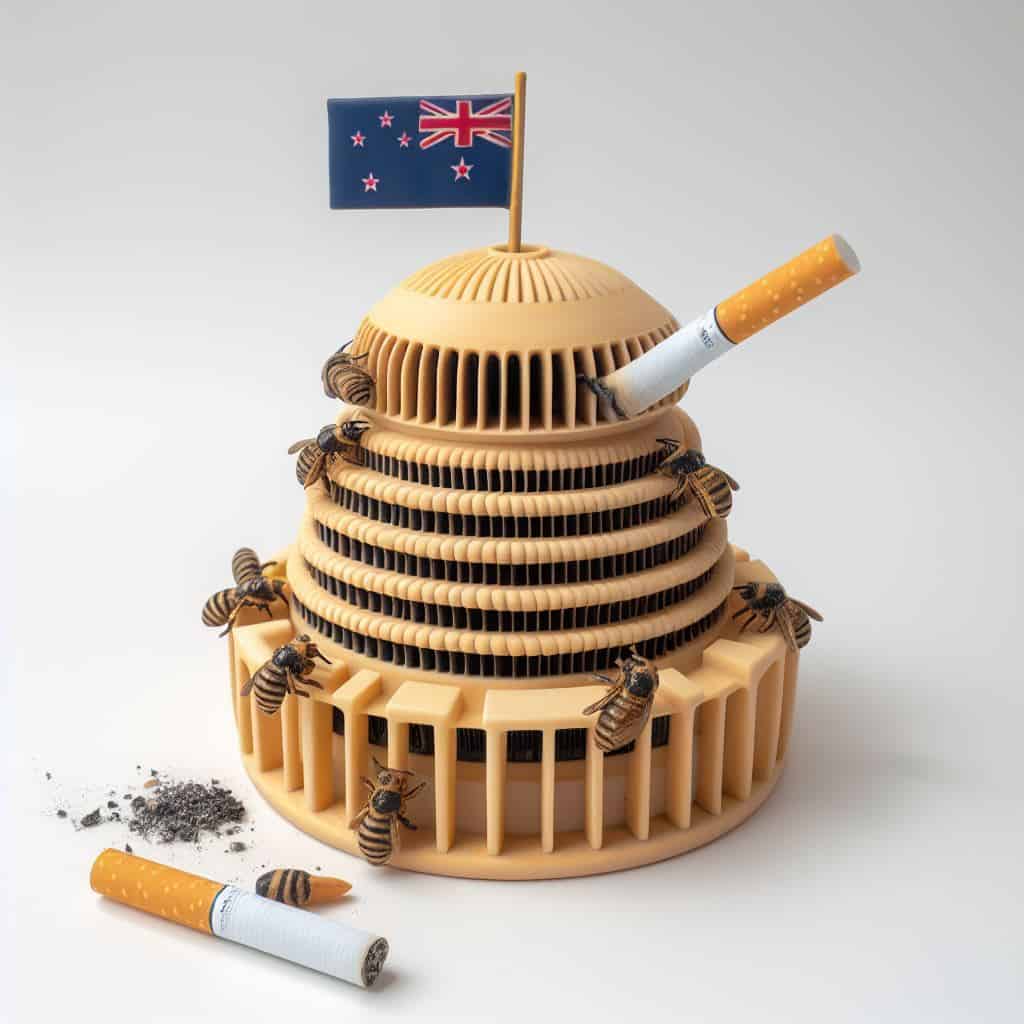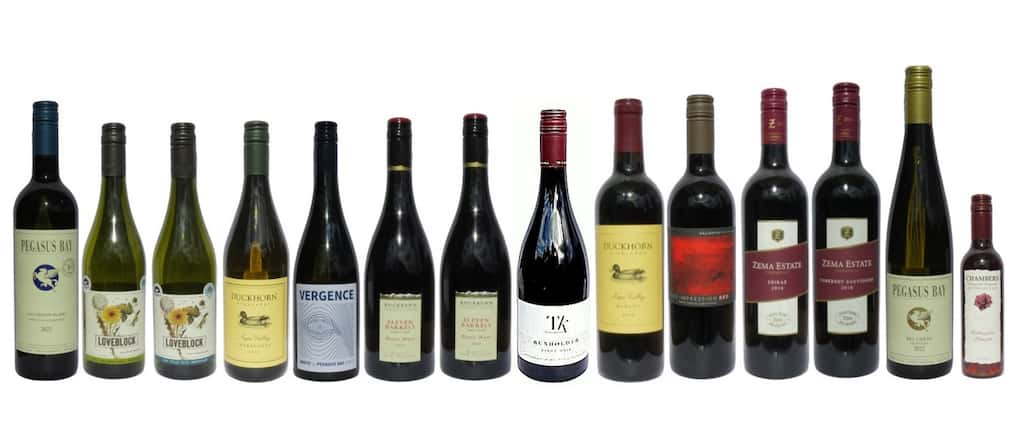The National party’s announced policy crackdown on gangs is misconceived and potentially dangerous in the long-term, opines PAT PILCHER.
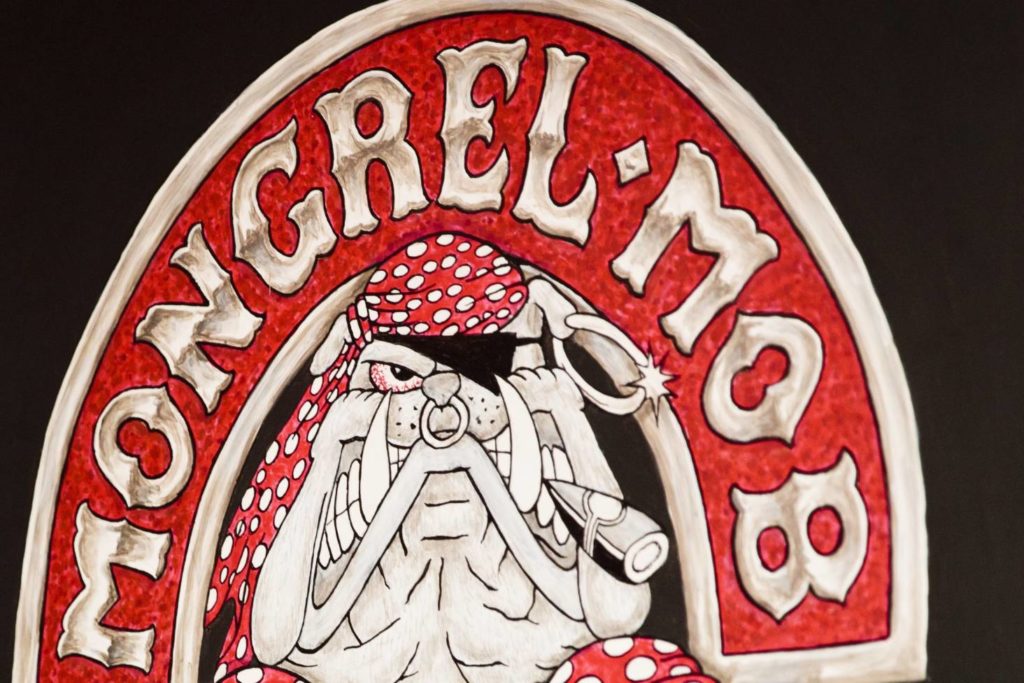
After World War 1, Germany was bankrupt thanks to onerous reparation repayments. This led to the collapse of the German economy in 1931, even though reparation payments were suspended for a year and in 1932, cancelled altogether. A staggering 42 billion German marks were worth the equivalent of just one American cent.
Living in what had previously been one of the most prosperous nations in Europe quickly became hellishly hard and public anger grew. An ex-soldier with an eye for political gain who could deliver fiery speeches tapped into that anger. Using his oratory skills he twisted public perception and directed mounting levels of anger at the German Jewish population, which he irrationally blamed for much of Germany’s woes.
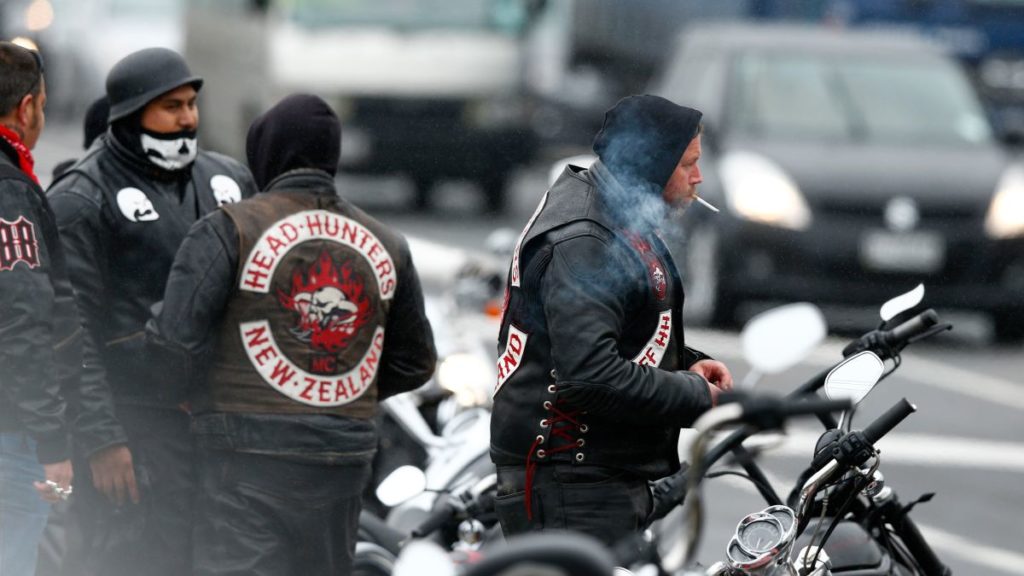
The rest is now the stuff of history books, yet sadly, it appears that we’ve learned nothing from this horrible part of the 20th century, and history seems to be repeating. There’s a lot of eerily similar themes emerging in New Zealand right now.
Last week, the National Party unveiled yet another set of anti-gang policies. The Nats say that if voted into power, they’ll copy the Australians and set up special police units to harass and “drive gangs out of existence”. Additionally, they’ve also said they’ll bring in tougher parole and sentencing conditions for gang members, along with a ban on patches and gang insignia. This isn’t the first time they’ve rattled their sabre to stop their polling from falling completely off a cliff. I’ve covered National’s dog-whistle politics aimed at gangs before. Funnily enough, just like their previous crackpot policies, their latest ideas seem to be designed more to sound good to potential voters than achieve any real and positive social outcomes. Most importantly, these policies don’t stack up once critical thinking is applied.
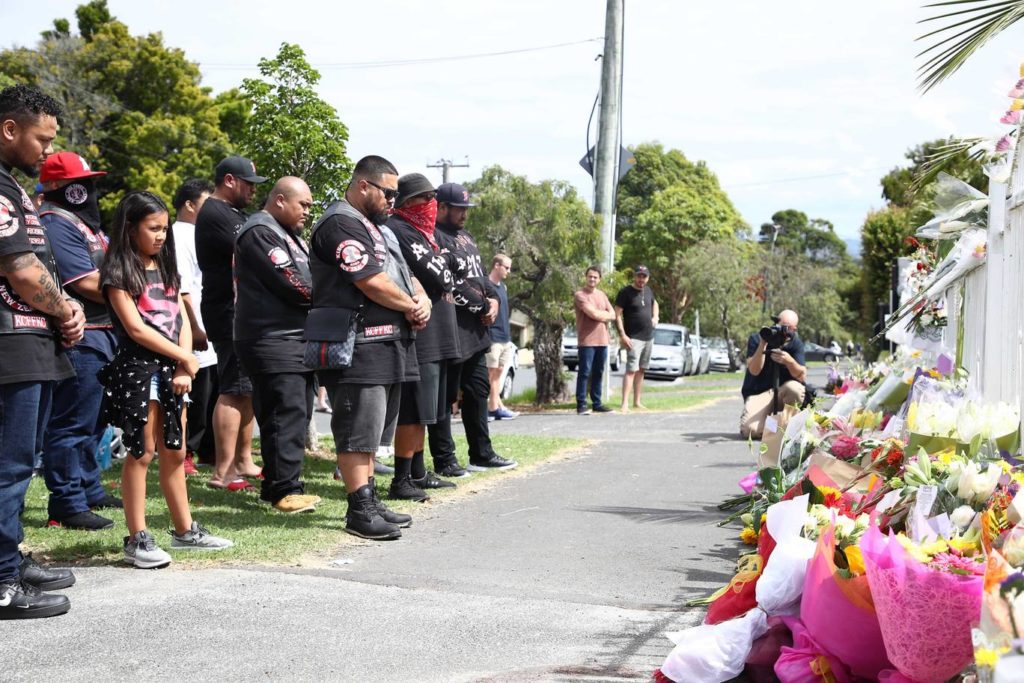
While National’s channelling of fear and hatred at a minority to catch votes has played well with some, others are thankfully recoiling in horror. On TV One’s Breakfast, Bridges told an incredulous John Campbell that similar measures had proved to be “devastatingly effective” in Australia. Bridges also cited media reports in which he claimed Aussie police units were driving gangs to extinction.
As good as this sounds at a purely emotive level, the reality is that many of the claims Bridges made on Breakfast simply don’t hold up when the facts get checked. This was evident with the comments of an ex Australian police detective who was quoted by Stuff as saying that Simon Bridges ” …needs to pull his head out of whatever it’s stuck in because… [gangs] exist. They’re always going to exist. They just go underground.”
Hard facts are sadly lacking from Bridges’ rhetoric. This is a real shame, as crime stats are not all that hard to find and if he was so confident of his party’s proposed policies, he could have quoted them to good effect.
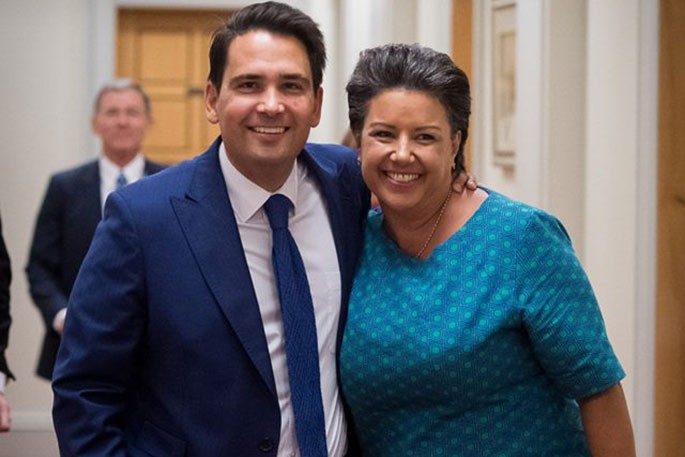
According to the New Zealand Police’s most recent crime at a glance stat sheet, there were 268,074 crimes over the last 12 months in the period ending 31 August 2019. On its own, this figure seems meaningless, but the Police say that 77 percent were crimes against property, with the balance – just 23 percent – made up of crimes against people.
The bulk of crime reported in the Police statistics for NZ seems to revolve around theft and illegal use (53,801), which is followed by the theft and illegal use of motor vehicles (29,354), shoplifting (28,657) and the theft of car parts and/or contents (28,513).
So, unless gangs are out playing grand theft auto for reals, or gosh darn it, shoplifting, very little of New Zealand’s actual crime appears to be gang-related.
Peddling fear at potential voters isn’t a new tactic for the National party. Robert Muldoon used this tactic to good effect back in the 1970s with the “reds under the beds” campaign TV ad. We fell for it hook, line and sinker, and sadly appear to be doing it all over again 40 years later.

This isn’t to say that gangs are not committing crimes, but putting it into perspective, most of the crime in NZ seems to revolve around property theft. Even when crimes against people are factored into the mix, most seem to be made up of cases consisting of common assault and assaults not causing injury. Most of these are more likely to be the result of scuffles between Joe and Joanne public (who are, more often than not, non-gang members) with a bit too much booze in them while out on a Friday night.
So, if the gang crime wave Bridges talked up doesn’t exist, it is also fair that the surge in the growth of gang members he’d indicated to John Campbell should be questioned too.
It appears that Simon may have pulled these figures out of his ass. The reality is that Gangs don’t keep membership registers or fill out census questionnaires as “gang member”. There are no official records of gang numbers in New Zealand. Any figures quoted by Simon are at best estimates, and therefore likely to be made up for their political impact. It also goes without saying that estimates are a woeful basis for policy formulation by any potential government. The leader of the National party should know better.
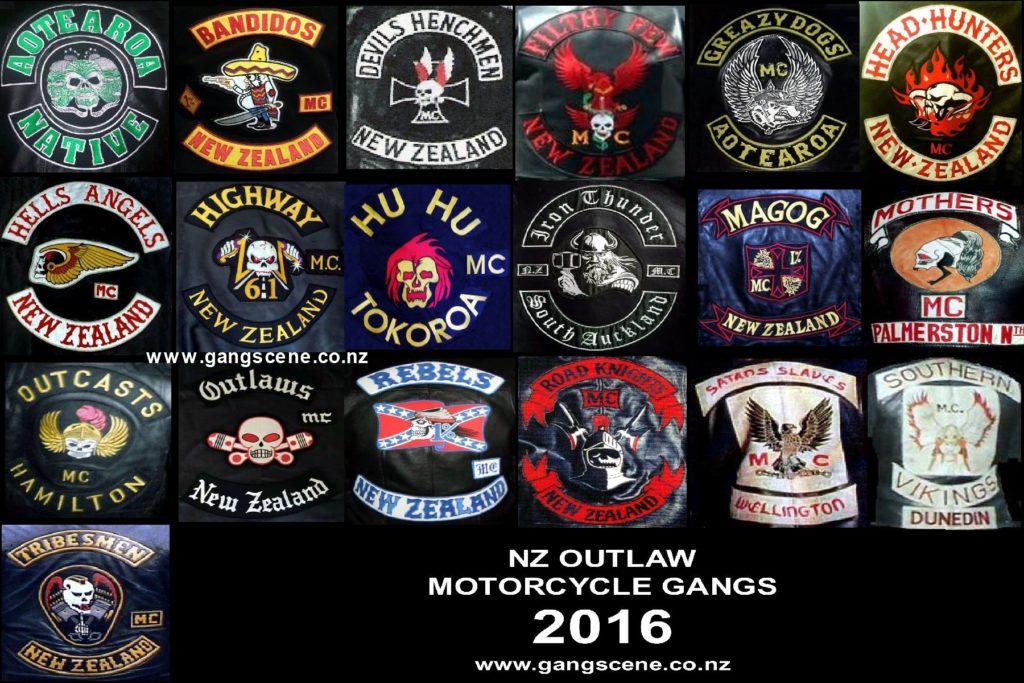
About the only real source of gang-related numbers comes from the New Zealand Ministry of Justice who regularly track the gang affiliations of prison inmates. The study showed in 1991 that just shy of 80 percent of all inmates had no gang history and that 90 percent had no current gang membership. Of the 1991 prison population, only 4 percent were members of the Mongrel Mob, 4.3 percent former members, while 3.6 percent were current and 3.2 percent former members of Black Power. No other gang equated to more than one per cent of the prison population. The most recent study (April 2013) did, however, show that gang members and affiliates account for over 30 percent of inmates.
While these numbers show a rise in prison gang populations, equating these to an increase of gang members throughout New Zealand is at best a stretch.
So if the two key planks in Bridges’ argument are dubious, the following question needs to be asked:
Will National’s proposed policies solve New Zealand’s gang-related problems?

How will denying parole and taking a stricter sentencing stance on gangs be helpful? Surely a growing gang prison population is a clear sign that the Police are already tackling the gang problem? A far more pressing (yet not so much of a vote-catching policy) issue is New Zealand’s growing prison population. Funnily enough, Simon has no answer to what effect National’s policies will have on New Zealand’s steadily increasing prison populations.
Banning gang patches and insignias are equally problematic. Patched gang members are identifiable, allowing Police to keep tabs on them easily. Making it illegal to wear gang paraphernalia won’t stop people from joining gangs. In fact, it might have the opposite effect by driving them underground and lending them an air of secrecy. Several commentators have said that a crackdown could lead to a Robin Hood effect where gangs become a significantly more attractive proposition to potential recruits. Wasn’t that something National was adamant they’d do something about?
Some are also arguing that under National’s anti-gang policies, it will become a considerably more difficult (and costly) task for our already over-stretched Police to keep gangs under control. Cracking down on them isn’t likely to predispose gangs to be more co-operative with the Police, and as counter-intuitive as this sounds, Police need to have a working relationship with gangs if they are to solve gang-related crime.
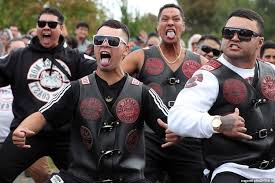
Taken in its entirety, it is a fair assumption that while National’s proposed gang crackdown will play well with some voters, the policy isn’t well researched. It is also likely that if it is implemented, it won’t solve many gang-related problems and could even make things considerably worse.
Perhaps most concerning of all, is the potential long-term fallout from the legislation National is proposing. By setting up a legal framework for cracking down on gangs, National is possibly creating an alarming scenario whereby other minorities could be classified as gangs to achieve political ends. There is little to nothing stopping future governments using these laws to round up refugees, political adversaries and other minorities. While this example is both extreme and highly unlikely, history is filled with examples of such ill-conceived policies becoming a slippery slope to something that’s very ugly indeed.

